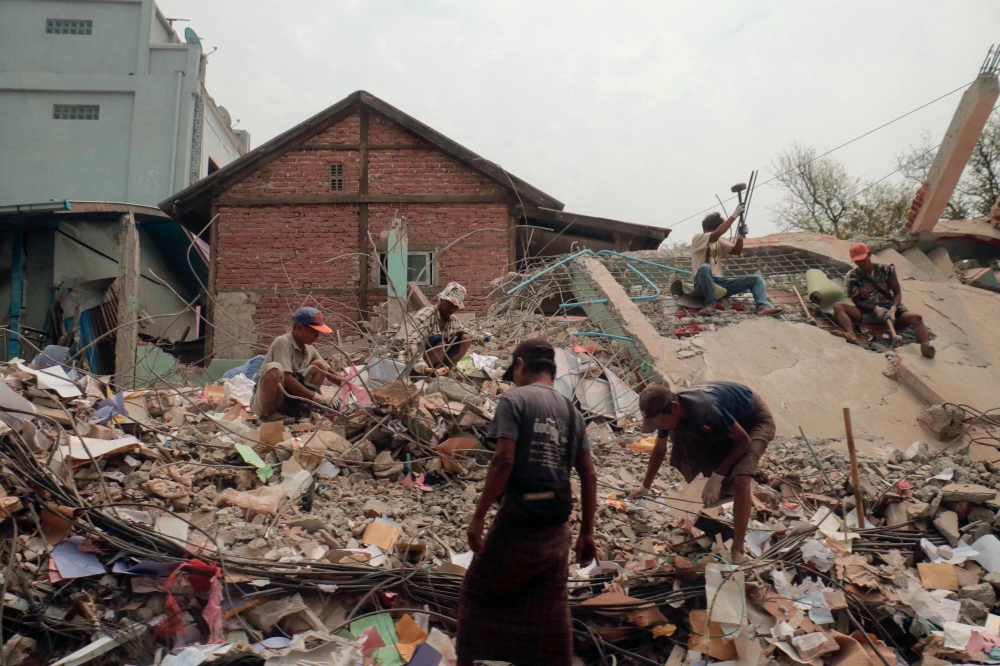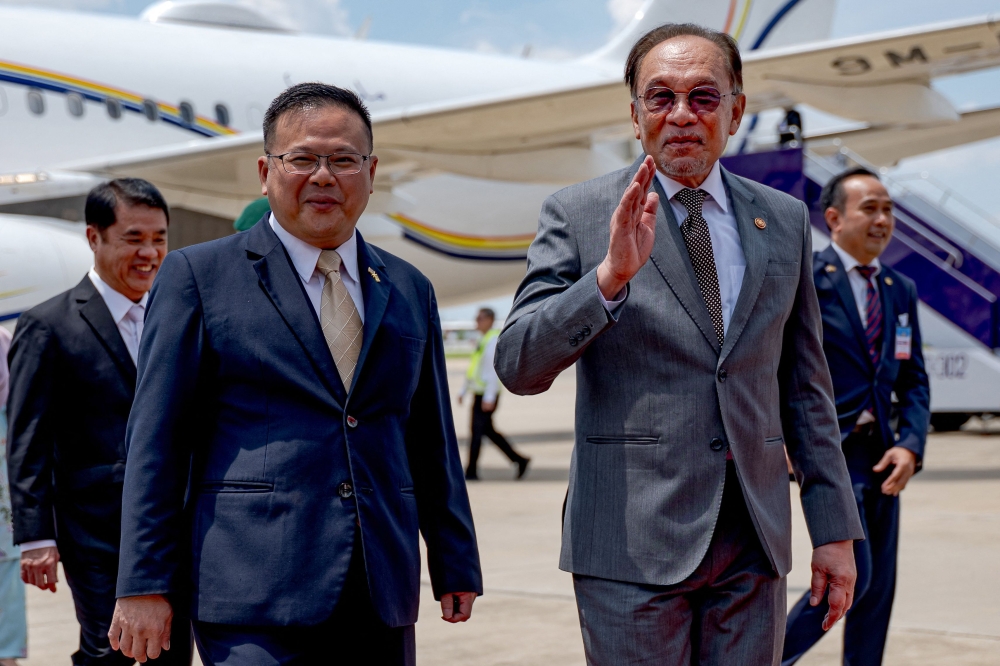KUALA LUMPUR, April 20 — Prime Minister Datuk Seri Anwar Ibrahim spoke to leaders from both Myanmar’s ruling junta and the deposed civilian government during his two-day working visit to Thailand, leading to concessions between warring factions in the war-torn nation.
Analysts described it as a rare outreach effort, as the 10-member Association of Southeast Asian Nations (Asean) continues to ostracise Yangon following Myanmar’s military coup in 2021, which deposed an elected civilian government and sparked a civil war.
What was the meeting about?
Putrajaya supported the call to bar the ruling generals from Asean meetings after Yangon was accused of shunning the bloc’s peace plan. However, a powerful earthquake that struck Myanmar on March 28 provided junta chief Min Aung Hlaing with a rare diplomatic window, including a visit to Bangkok for key meetings in early April.
As the current Asean chair, Anwar said he wanted to speak to Myanmar’s leaders on humanitarian grounds.
The magnitude 7.7 earthquake killed more than 3,600 people, while rights groups estimate that the civil war has displaced more than three million people.

People sort through the rubble of a collapsed building in Mandalay on April 5, 2025, following the March 28 earthquake. — AFP pic
What came out of it?
A few concessions were achieved, including an extended ceasefire to allow more humanitarian aid into disaster-hit regions. Anwar told reporters in the Thai capital that the warring factions had agreed to avoid “provocation” as he hailed the meetings as a success.
Myanmar’s junta announced a 20-day ceasefire on April 2, following a similar move by the opposition National Unity Government (NUG) after the earthquake struck.
However, the junta has continued military operations in some areas despite the ceasefire, according to the United Nations and other groups in Myanmar.
Anwar suggested that his meeting was cause for optimism for more dialogue between the NUG and the junta in the future.
Why was Myanmar a top agenda item at the Bangkok visit?
There are multiple reasons, said Khoo Ying Hooi, associate professor at the Department of International and Strategic Studies, Universiti Malaya.
Myanmar has become not just a regional flashpoint but, for Anwar, a test of whether Malaysia can provide meaningful leadership amid one of Asean’s most protracted and morally complex challenges.
“Anwar’s decision to engage both the military junta and the NUG signals a strategic recalibration. It’s a calculated and controversial move to confront the diplomatic paralysis that has rendered the Five-Point Consensus ineffective,” she said.
“Rather than perpetuate a stagnant status quo, Anwar appears determined to reopen dialogue channels and reassert Asean’s diplomatic relevance.”
Why does peace in Myanmar matter to Malaysia?
There is a reputational cost of inaction as Asean chair if Anwar handles the Myanmar question lightly, Khoo said.
“Asean’s credibility has already been severely damaged by its failure to respond meaningfully to the post-coup violence in Myanmar.
“As chair, Malaysia cannot afford to manage the crisis simply; it must demonstrate initiative, particularly in the wake of recent devastating earthquakes that have further worsened conditions on the ground.”
Is this a win for the Anwar administration?
Anwar’s diplomatic gamble could go in one of two directions.
If successful, Malaysia may reclaim its standing as a key regional actor capable of shifting entrenched Asean norms, Khoo said.
But if it falters, Anwar risks facing accusations that it has helped legitimise military rule without any real progress, undermining both Malaysia’s credibility and Asean’s already fragile legitimacy, she added.
Ultimately, failure would reinforce the perception that the bloc is incapable of holding its members accountable.

